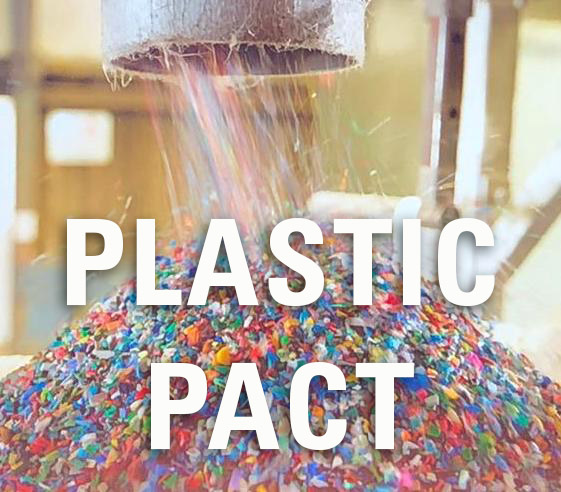Nestlé joins Dutch Plastic Pact for 100% reusable and recyclable packaging in 2025
Nestlé joins Dutch Plastic Pact for 100% reusable and recyclable packaging in 2025
Text source: Nestle, The Hague, Feb 21, 2019
Plastic Pact
This afternoon, during the National Circular Economy Conference in The Hague, Nestlé signed the ‘Plastic Pact’ together with more than 70 other companies and environmental organizations. The Pact is an initiative of the Ministry of Infrastructure and Public Works. The signatories of the pact agree to reuse more plastic, to make all new plastic 100 percent recyclable and to investigate alternative packaging materials.
Nestlé is convinced of the urgent need to minimise the impact of packaging on the environment. The signing of the Plastic Pact is therefore in line with the food company’s ambition. By 2025 at the latest, Nestlé wants to make all its packaging suitable for recycling or reuse. In its vision, no packaging, including plastic, should end up on the rubbish heap or as rubbish.
Pierre-Alain Michaud, Head of Operations of Nestlé Netherlands: “I am proud that we as Nestlé have signed this Plastic Pact. It underlines our efforts to reduce the amount of plastic waste. Plastic waste is one of the biggest sustainability issues facing the world today. This requires a joint approach. We are committed to finding improved solutions to reduce the amount of packaging, and to promote reuse and recycling”.
Sustainable packaging materials
A first step towards Nestlé’s ambition to reduce plastic waste is the introduction of paper packaging for new Nesquik products in the first quarter of 2019.
In addition, the opening of the Institute of Packaging Sciences in December 2018 is an important part of Nestlé’s plastic strategy. In this institute, Nestlé will develop and test various sustainable packaging materials and work with industrial partners to develop new packaging materials.
For example, the food manufacturer has already entered into a global partnership with Danimer Scientific to develop a biodegradable and recyclable water bottle. Based in Bainbridge, Georgia, Danimer Scientific is a pioneer in creating sustainable and natural ways to make plastic products.
In addition, Nestlé is working with PureCycle Technologies to produce recycled polypropylene (PP) suitable for food use. PureCycle Technologies develops breakthrough recycling technologies that remove colour, odour and contaminants from plastic waste raw materials and then transform them into virgin resin. Polypropylene is a polymer commonly used for packaging food into trays, cups and bottles.
Reducing the amount of plastic waste and striving to reduce the environmental impact of its operations is an integral part of Nestlé’s commitment to creating shared value for shareholders and society. In particular, Nestlé focuses on reducing the amount of plastic waste more quickly and reports publicly on the progress the company is making.

